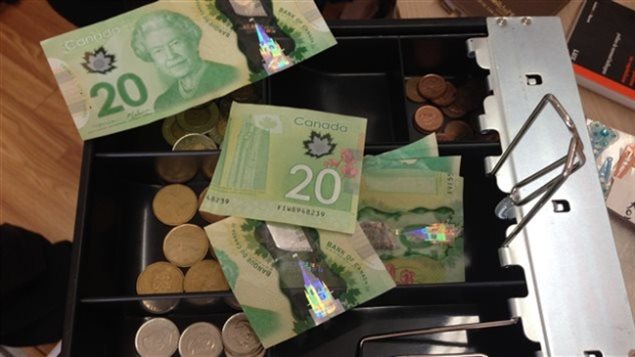Gaspe, Quebec is a region known for its great beauty and draws tourists from far and wide each summer. This year some of the tourists took in more than the scenery.
They noticed some interesting financial transactions among the locals that involve $5, $10 and $20 Canadian bills, cut in half, and used for half the value. They’re known as ‘demis’.
“It’s money that can only be circulated among these local users,” Patrick DuBois, a demi user from Carleton-sur-Mer, told CBC News. “No one else will accept it anywhere right now.”
Bank of Canada policy says it can refuse to reimburse anyone who wants a replacement bill if…
Michelle Secours, who runs a business in Caplan, Quebec, said the demi has created a parallel local economy. She said it shows a commitment to local businesses. “You have to be kind of in-the-know to use it, so it’s creating a tight network,” she said. “It’s not going to be accepted in a shop in Montreal, so it’s a way for us to consolidate our money here.”
The Bank of Canada cautions, that while the practice is not strictly illegal, it is not advisable. “The Bank of Canada feels that writing and markings on bank notes or mutilating them inappropriate as they are a symbol of our country and a source of national pride,” Josianne Ménard, Bank of Canada spokeswoman, said in a written statement. “Canadians can help keep their bank notes in good condition so they circulate longer.”
Martin Zibeau, a demi user from Saint-Siméon, said it’s difficult to know how many people are using the quirky local currency, but he personally knows of more than a dozen. “It’s something that’s still developing. It’s funny — there are a lot of tourists who have seen it and spread the word across Quebec.”
Zibeau doesn’t see anything wrong with the demi because the bills are still being used as currency. “In the worst case, if we find ourselves in trouble, we just need to make a call out to collect all the bills with the same serial number to restore the value. We can always put them back together.”
This is the catch, however, as Bank of Canada policy says it can refuse to reimburse anyone who wants a replacement bill if “the notes have otherwise been altered or damaged deliberately or in a systematic fashion.”







For reasons beyond our control, and for an undetermined period of time, our comment section is now closed. However, our social networks remain open to your contributions.